By Jae-Ha Kim
Teen Vogue
February 15, 2022
It is a week after Seollal – the first day of the Korean Lunar New Year – and Tablo normally would be relaxing with his family. Instead, he has isolated himself in a spartan room in his Seoul home where he is quarantining after testing positive for COVID-19. He is dressed casually, wearing a cap and a T-shirt that depicts the swimming baby from Nirvana’s Nevermind album cover. Aside from being a little run down, the hip-hop star and Epik High frontman says he feels fine. Indeed, throughout our Zoom conversation, Tablo – also known as Daniel Lee and Lee Seon-woong – is contemplative and witty. His evolution as an artist over the past 21 years has shown revelatory growth. And in both his music and this interview, Tablo conveys a sense of hope that better things are yet to come.
By the time this article is published, the Korean trio – which also includes Mithra Jin and DJ Tukutz – will have released Epik High Is Here下 (Part 2), a powerful followup to 2021’s Epik High Is Here上 (Part 1). The two albums share a symbiotic relationship, with each serving as half of the group’s 10th studio album. When Tablo tweets that the lyrics on this Valentine’s Day release are the most personal he’s penned since his 2011 solo album, Fever’s End – another two-part release that he recorded when his life was in turmoil – he’s hinting at something like catharsis. The unapologetic vulnerability that comes after years of torment is blissful release.
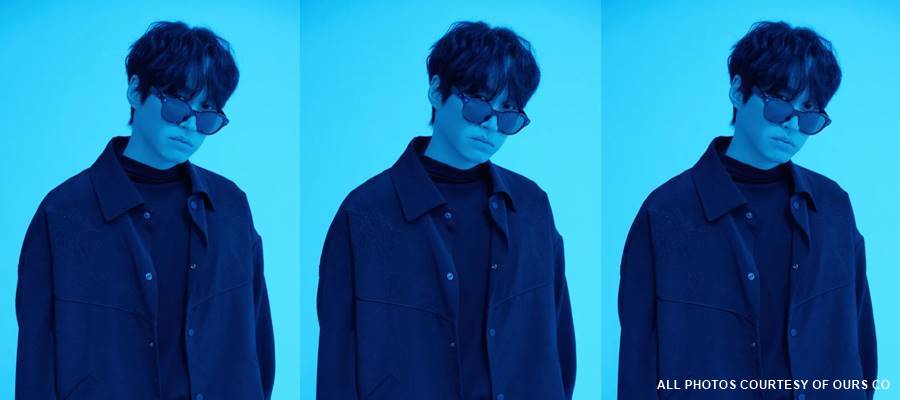
To understand where Tablo is today is to reflect on the hardships he overcame to get here. Yes, Epik High will cap off their North American tour with coveted spots at the Coachella Valley Music and Arts Festival. And yes, they are the only Korean group to have been invited three times (2016, 2020 – which was canceled due to COVID-19 – and 2022). But Tablo says he takes none of this for granted, because it could all go away… just as it did a decade ago. (More on that later.)
“I have no idea why Coachella likes us and why we’re at international festivals,” Tablo tells Teen Vogue. “When other musicians in Korea ask us how we got invited, I really don’t know what to tell them. I’m 1,000 percent sure that it’s not all the things we did right that got us here. [Rather], all the things we did wrong and that we suffered through got us here. So all these accidents happening led to good things. I am fairly certain that if you don’t take any chances or allow yourself to fail – and to sometimes hurt and have people point fingers at you – you will most certainly not get there.”
Tablo has said that from a young age, he wondered about where there was. Besides the expectations of what a bright Korean boy should do – which didn’t include forming a band – he spent his childhood moving from country to country. Born in Seoul, Tablo and his family spent three years in Indonesia before moving back to Korea and then later immigrating to Canada, where they moved to a new neighborhood every other year.
“Eventually, I stopped myself from making too many friends, because I knew I would have to say goodbye to them and I hated that,” he told me in 2019. “So, my childhood was a constant loop of saying teary goodbyes to old friends and awkward hellos to new ones. Wow, this sounds really depressing when I word it out like this. Well, it was.”
When he was in middle school, he and his family moved back to Seoul. While his new classmates had already developed deep-rooted friendships, he was once again the outsider. When he felt alone and depressed, he relied on hip-hop music to see him through the tough times. After meeting Mithra Jin and DJ Tukutz in the early aughts, he felt like they had been lifelong friends, he says.
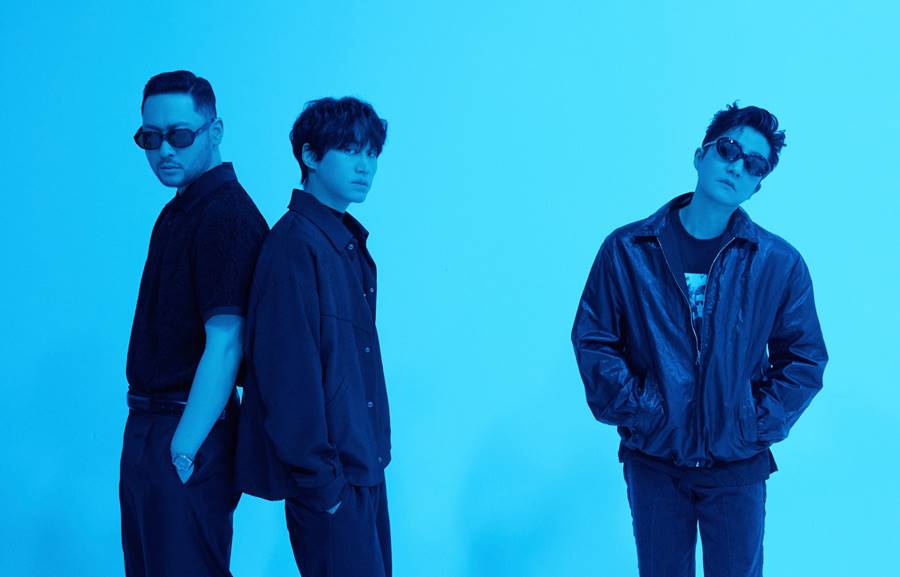
Antifans and the Stanford Controversy
For a period of two years, from 2010 to 2012, Tablo was the victim of a well-organized smear campaign orchestrated by an antifan group with 200,000 members. Why? They believed his academic accomplishments were exaggerated.
In South Korea – the no. 1 most educated country in the world, according to the Organisation for Economic Co-operation and Development (OECD) – graduating from a top university and being able to speak fluent and unaccented English is highly coveted. With his 160 IQ and Stanford University education, Tablo became the target of antifans who refused to believe that the bilingual hip-hop star had graduated from an elite school with both his bachelor’s and master’s degrees in less than four years. The trolls also didn’t like that as a Canadian national, Tablo was exempt from the two-year mandatory military duty that almost all able-bodied South Korean men are required to serve. In their eyes, Tablo was nothing more than a privileged, black-haired foreigner who benefited from South Korean society without any downsides.
In 2010, the online forum 타블로에게 진실을 요구합니다 (“We Demand the Truth from Tablo”) – often abbreviated as 타진요 (“TaJinYo”) – incessantly demanded that the artist apologize for misleading the public about his academic background. Though the forum’s full name utilized honorifics, the libelous and vicious attacks were anything but polite. Inflammatory posts by someone claiming to be Tablo’s cousin were all they needed to legitimize their claims that the musician deserved to be threatened. Of all the perpetrators, just eight were sentenced to jail time or probation. One of the most egregious offenders was a 56-year-old Korean American man who disapproved of well-connected Koreans bettering their lives with fake academic records.
Even after Tablo’s former professors at Stanford verbally verified on camera that they had taught him – and administrators showed off Tablo’s university records – TaJinYo refused to be satisfied. They insisted it must have been a different alumnus with the same name or that the school deliberately conspired with Tablo.
During this time, Tablo and his wife – Oldboy actress Kang Hye-jung – were new parents. They were wary of going out in public. His scandal was dissected regularly on nightly newscasts and in legitimate newspapers. As visible celebrities, Tablo worried they were easy targets for haters.
“The only silver lining I could imagine was that hopefully through this, there would at least be some awareness,” he tells Teen Vogue. “And once I proved myself as truthful and didn’t succumb to this and kill myself, hopefully people would see that it’s possible to defeat this. But this was fake news before Fake News. When you look back on it now, it was almost like a prediction of things to come [not just in Korea, but in the U.S., too]. Nothing has changed.”
The specter of TaJinYo is always in the back of his mind, he says. (Tablo will delve more into this era of his life in the upcoming 10-episode podcast Authentic: The Story of Tablo, which premieres February 24 on iHeartRadio.) He shares this horrible part of his life unprompted in interviews, not because he is seeking sympathy, but because the experience has affected his psyche. Because the trauma associated with his past manifests itself in his work.
Surviving Loss
While Mithra Jin and DJ Tukutz fulfilled their military duties between 2010 and 2012, Tablo channeled his fears and angst into his first (and so far only) solo album, which he split into two separate critically-acclaimed releases: Fever’s End: Part 1 and Fever’s End: Part 2. MTV Iggy named Part 1 as one of the best debut albums of 2011, and it also reached the top position on the U.S. and Canadian iTunes hip-hop album chart.
TaJinYo had impacted Tablo’s own mental health, but it also took a toll on his family. The ordeal exacerbated his father’s deteriorating health. The elder Lee died in 2012, before he could see anyone punished for their crimes against his son.
On Epik High’s latest album, Tablo addresses this trauma in “Family Portrait,” which is set to a tranquil lullabye melody: “I can understand the scowl on my father’s face / In our home, silence was as sacred as rice / Now, even in happy times / The silence of an empty spot is louder than laughter / The last time I was in his arms / I thought to myself / Even heaven ages.”
Tablo and Mithra’s introspective verses are offset by guest vocalist Kim Feel’s melancholy refrain: “The only one who understands me / The only one who comforts me / There is no one left / I’m lonely.”
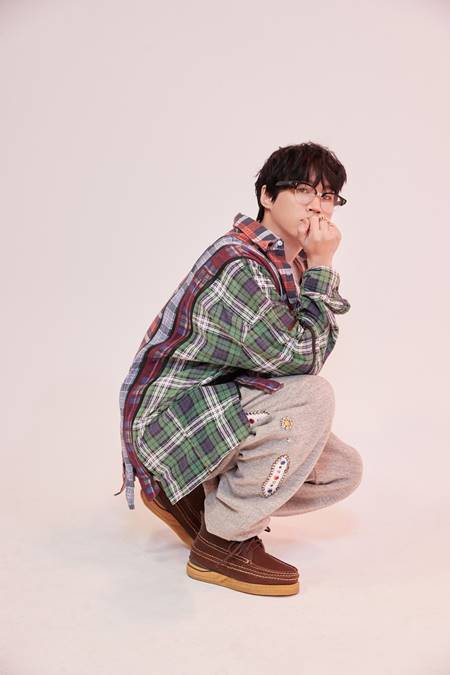 “I had been working on it for a little while, but I kept putting it off, because it’s just a little too personal,” he says. “Originally, there wasn’t Mithra’s verse – it was another verse from me. But it got too heavy and I wanted it to not be just my story, but to be a story for anybody who … has lost a family member. I actually didn’t want to release this song [at first]. But I always have this looming thought in my mind that it could be the last album, right? And if it’s going to be our last album, I wanted this to exist on the record.
“I had been working on it for a little while, but I kept putting it off, because it’s just a little too personal,” he says. “Originally, there wasn’t Mithra’s verse – it was another verse from me. But it got too heavy and I wanted it to not be just my story, but to be a story for anybody who … has lost a family member. I actually didn’t want to release this song [at first]. But I always have this looming thought in my mind that it could be the last album, right? And if it’s going to be our last album, I wanted this to exist on the record.
“Ever since that TaJinYo thing happened, I just assumed that every album or song I put out might be my last. You know, people talk about overnight success. I’ve experienced the opposite, where it was very difficult for me to become successful and famous. But my entire career was taken away. And because I know that’s possible, it’s impossible for me not to think that way. Every single song I make, I’m putting my all into it, as if it’s my last song. Tukutz is actually annoyed by that. He always says, ‘You lay 99 percent of it out so fast, and then you’re fixated on that last one percent of the song for a long time. No one can tell the difference.’ Yeah, I know, but I will know that I could have made it one percent better. He’s like, ‘Dude, that’s such a stressful way to live your life.’”
Ruminations of this kind have fueled speculation that Epik High is disbanding and Tablo kinda sorta clarifies this. They will never stop being Epik High, he says, but album wise, he’s not so sure.
“Tukutz has always said 10 studio albums is a good body of work and anything beyond that seems like you’re overstaying your welcome, and for the first time in my life, I agree,” Tablo says, smiling. “At the moment, I don’t see an 11th or 12th album as something necessary. But we’re gonna perform the hell out of this album and do everything that we’ve always wanted to do. And then I feel like we have to close a chapter of Epik High and move onto a new chapter. What that will be, I don’t know. But it’s quite possible that we just say this and then the album does really well and we’re like, ‘On to the next album, baby!’”
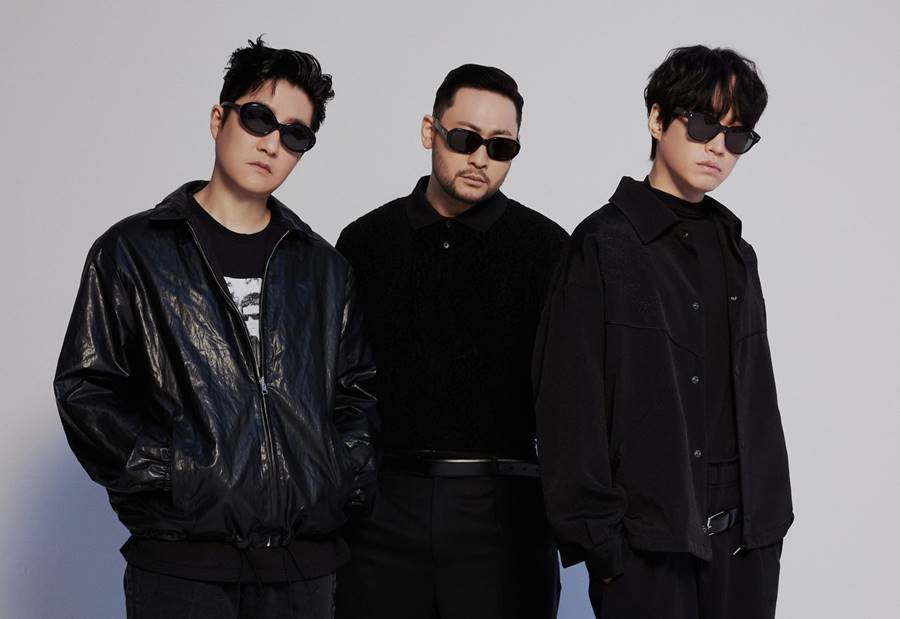
How TaJinYo Informs His Life Today
As this interview winds down, we talk a bit more about the abuse he endured over a decade ago. While online attacks are a worldwide problem, South Korea ranks near the bottom in overall awareness of cyberbullying, according to Statista’s 2018 data.
The track “Face ID” addresses the vitriol people spew online under the protection of anonymity: “Everybody gangsta until they’re face to face / Their guard is quick to get unlocked … / If you have something to say, pull up … I’ve never seen anyone raise a fist once we’re face to face.”
And “I Hated Myself (Tablo’s Word)” offers some of the despair he has felt: “This is for everybody like me that is hatin’ yourself /And cryin’ for help / I hated myself / I hated myself / Tell me who can love me when I hate me? / I’ve been feelin’ like I’m freefallin’ lately / Is anybody out there? Out there? / Will anybody care when I’m not here?”
I ask him, given his history of being harassed online, what message would he like to pass onto the younger generation?
“Before I give advice to young people, I would like to share some words with their parents and teachers,” Tablo says. “Instead of telling [kids], ‘Hey, you need to be more confident, you need to be stronger,’ think about why they’re not strong. Think about why they’re having a difficult time loving themselves. Ever since we were little, we’ve been trained to think that someone else’s opinion really matters the most, right? And then you’re surprised that young people are unable to withstand other people’s negative opinions. I would first urge adults to think about that a little bit … because sadly, [online bullying] has only gotten worse.”
Epik High Is Here下 (Part 2) speaks of longing and loss, the past and the present. But the most powerful message is that to have love for yourself isn’t indulgent, but necessary. That extends to artists themselves, he says.
While a song like “Super Rare” could be viewed as a diss track (“Why u boastin’? / Your song is a meme / I’m givin’ ‘em oceans / F—k your streams / I’ve done everythin’ that y’all just imagine / Hold my phone, Imma do a dance challenge”), he describes it as a song advocating for authenticity.
“That line was obviously directed at Drake, who is currently our biggest rival,” Tablo jokes. “He’s a dad as well, so it’s a battle of the Canadian rap dads. It’s a shot at Drake.” He laughs shyly, before continuing.
More seriously, he shares that the verse is wordplay and is meant to address musicians moreso than fans. “Don’t do it for the streams, do it for the actual emotions,” he says. “You could have three views, but if you’re able to affect the lives of those three people [who] listen, you’ve done your thing.”
He briefly pauses to reflect on what he said before adding, “There are certain groups that can be both, though, and that’s pretty awesome. You have groups like BTS who have these incredible numbers, but they also literally affect people with their actual content. They affect them emotionally. But then there are certainly artists who are fixated on the money and fame and not really doing all that they can.”
After our interview is over, I give the new album another listen. With the sparse 40-second opening track “Here,” Tablo succinctly encapsulates where he’s at today: “Goin’ from wishin’ I wasn’t born at all to thinkin’ I was born for this / Pages torn to bits, as pencil tips break / Am I runnin’ out of things to say? / I close my eyes, let the muses rewind the tape / And I’m back to yesterday.” Had he not experienced the alienation and toxicity of TaJinYo, Tablo’s music – and therefore Epik High’s, too – most likely would not have resulted in Epik High Is Here 下 (Part 2). From all those lies, truth survived.
I’m reminded of a Korean folk tale my mother told me growing up. It’s the story of 콩쥐 팥쥐 (“Kongjwi and Patjwi”), which starts off with a Cinderella-like concept, but ends with a macabre twist. In order for the heroine to live the life she deserved, she experiences death first. The moral of the fairy tale is that no matter how long it takes, goodness prevails.
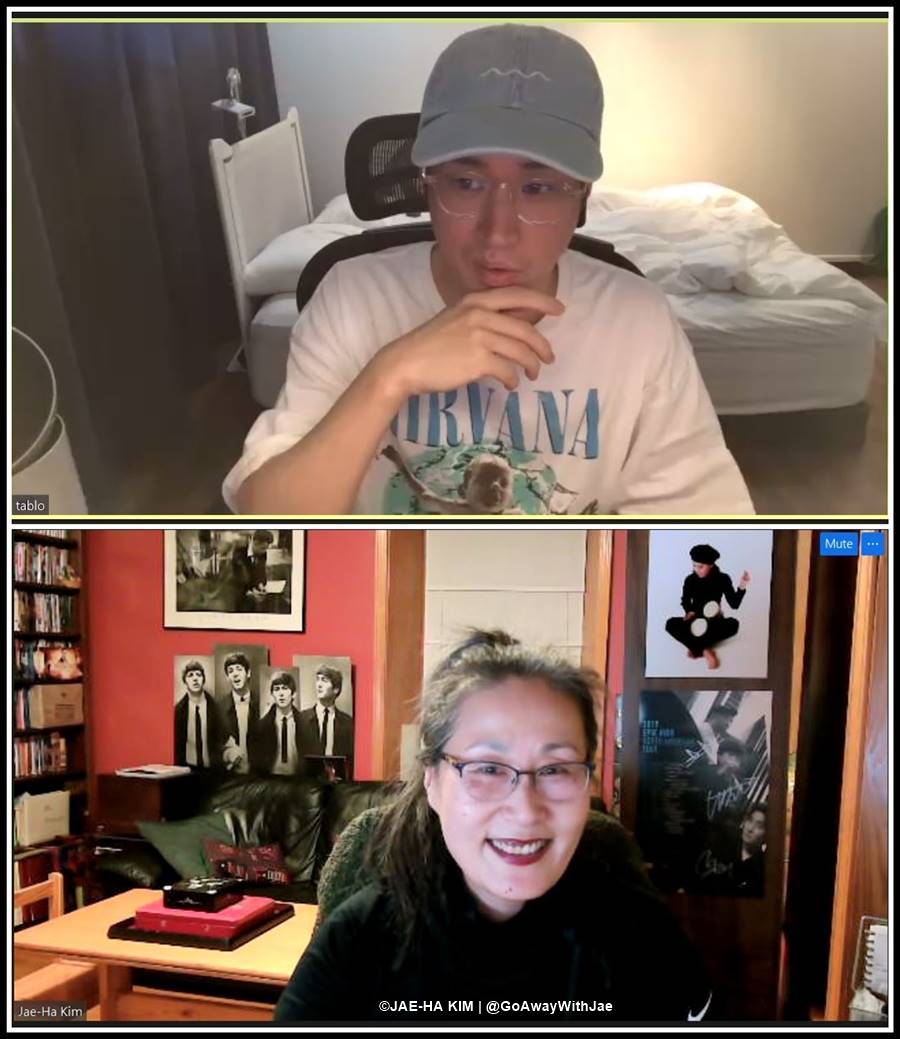
One of the best reads you will find. @GoAwayWithJae tells a story so honestly and beautifully; one that needs to be felt and read. (P. S also an album you NEED to hear. Not going to lie, Here reduced me to tears, @blobyblo.) #EpikHigh #EpikHighIsHere
This was such a great interview. Thank you both for trusting each other to write this!
Long time fans of you both. This was such a great read. I didn’t realize Tablo went through all these hardships. I had a difficult time digesting it all, I don’t know how he lived through it but I’m so glad that he did. Jae, this is one of your best articles and I hope you are proud to have written this! Thank you thank you thank you!
Exactly!
sometimes you read things that make you want to be a better writer and interviewer and sometimes you read things that make you never want to do either again because how on earth could they ever compare. this is somehow both. so good
Ill say it again: how is it @TeenVogue consistently delivers higher quality journalism & interviews than so called reputable publications?
Anyways fantastic article! Tablo is such an inspiration & as a Canadian I can say he defs brings me more pride than Drak3 that’s for sure.
agreed but just to be clear Teen Vogue is a reputable publication too, it’s not some tabloid rag. this whole article was amazing though. i loved that it wasn’t just a normal q&a but really told a story. great job jae! it sounds like tablo and you really connected.
Some people write up a story based on great quotes and the quotes are what make the piece. This article was so beautifully written and well researched that it transcended a normal celebrity interview. Thank you so much for this. Honestly it was so much better than the Rolling Stone and Vanity Fair profiles on this man. This is the article he deserved. Thank you so much for writing it.
Everyone go read this now. And the next time you want to attack someone online famous or not, think about the human being behind the account.
@blobyblo’s words are incredible and powerful. Thank you @GoAwayWithJae for this story.